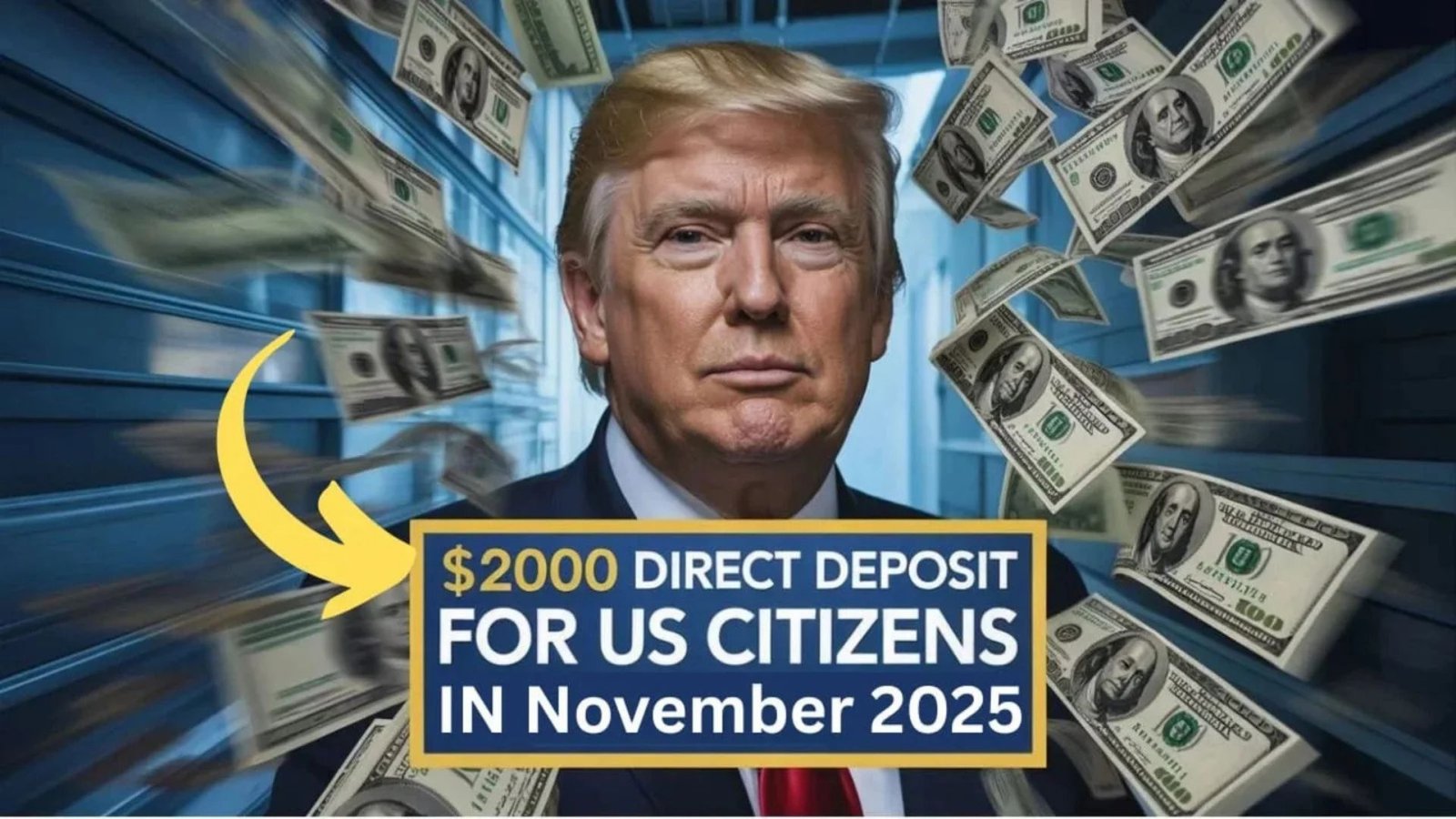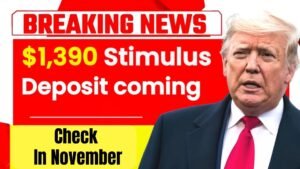Something unexpected has captured America’s attention — a claim that the IRS will send out $2,000 direct deposits to U.S. citizens this November. Is it true, or just another viral rumor? Let’s uncover the mystery, the facts, and what you should do before it’s too late.
What It Is / Introduction to the Topic
The buzz centers on a supposed $2,000 IRS direct deposit rolling out in November 2025 for eligible U.S. citizens. Many online posts suggest it’s part of a new relief initiative. The twist? While some details sound convincing, the truth behind this story is more complex than most people realize.
History, Background & Origin
During the pandemic, the U.S. government issued multiple stimulus checks through official relief programs. Those payments — authorized by Congress — helped millions during tough economic times. Since 2021, no new nationwide stimulus checks have been confirmed. The latest $2,000 rumor appears to have emerged from speculation, not an official government announcement.
Why It’s Important, Valuable & Relevant Today
The idea of an extra $2,000 landing in your bank account is exciting, especially as families continue to deal with inflation, housing costs, and rising debt. For that reason, this topic has gone viral. But misinformation can spread quickly — and scammers often exploit this excitement. Knowing what’s real (and what’s not) is the key to protecting your finances.
How Readers Can Engage With, Use, or Benefit From It
If a legitimate IRS payment program ever launches, you’ll be among the first to benefit by staying informed. Here’s what you can do now:
- Keep your tax information and direct deposit details updated with the IRS.
- Monitor official government announcements — not social media rumors.
- Never share personal or banking information with unverified sources.
- Stay financially prepared in case a verified payment does arrive.
Notable Facts, Statistics, or Records
| Claim | Reality |
|---|---|
| The IRS has confirmed a $2,000 direct deposit in November 2025 | False — no official announcement exists. |
| Payments will automatically go to taxpayers | False — there’s no verified program. |
| The last nationwide relief checks were sent in 2021 | True — those were the final confirmed stimulus payments. |
| Many Americans are still expecting new aid | True — financial strain continues to drive speculation. |
Expert Tips / Advice / Insights
- Always rely on official government sources for IRS-related news.
- Be skeptical of any website, text, or email claiming to “register” you for new payments.
- Real IRS payments require no separate application — they’re based on filed tax returns.
- Keep your direct deposit information accurate; if any legitimate payment happens, you’ll receive it faster.
- Avoid posting your personal details or banking info on public platforms, even in discussion groups.
Frequently Asked Questions (FAQs)
Q: Is the $2,000 direct deposit officially confirmed?
A: No. As of now, the IRS has not confirmed or scheduled any new payment for November 2025.
Q: Who would qualify if it becomes real?
A: In past programs, payments were based on income level, tax filing status, and dependents. A similar structure could apply if Congress approves a future package.
Q: When would payments arrive?
A: If approved, payments would typically follow within weeks of official authorization — but no such approval has been made yet.
Q: How can I avoid scams?
A: Only trust news from IRS.gov or the U.S. Treasury. Avoid any messages asking you to pay a “processing fee” or “verify” your account for a payout.
Conclusion: The Final Twist & Key Takeaway
The rumor of a $2,000 IRS direct deposit has created waves of hope — and confusion. For now, it remains just that: a rumor. The smart move is to stay cautious, informed, and ready. If real relief arrives, you’ll be prepared to receive it safely. If it doesn’t, you’ll have protected your finances from scammers. Stay alert — the next real announcement might come sooner than you think.




